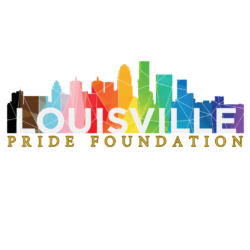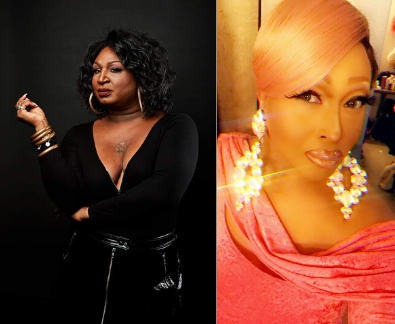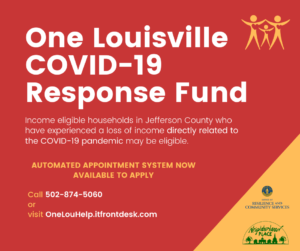By David Williams
Adapted from a chapter of his book, Secrets of Old Louisville
Until recently, gay men, lesbians, bisexuals, and transgender people were a relatively hidden subculture in Louisville as they were throughout most of the country. Even after the 1969 Stonewall Riots in New York–the LGBT world’s Bastille–the local population remained discreet for years. Only in the 1980s did it start making noise. Today they’re a visible part of the city, contributing in many ways to its leadership.
For years, Old Louisville was known by whispers as Kentucky’s gay mecca. Why? The theory is that when all of those old single-family mansions were getting cut up, absentee landlords weren’t too picky about renters; they just wanted the money. The neighborhood, which at one point had over 25,000 residents, was the perfect place to hide. One man, Richard A., had no trouble living in a same-sex relationship with his lover in Old Louisville in the 1950s. The neighbors just didn’t want to know.
Homosexual sex was still against the law and could be punished by up to two years in prison in Kentucky, so the LGBT community had to be quiet. If someone threw a party, gay men felt compelled to walk to the front door with lesbians before they paired off secretly with members of the same sex behind the curtains. Old Louisville could be a comfortable place for gay men and lesbians to live as long as they were careful. Some, of course, were not.
The first real glimmer of a gay presence dates from 1936. George Aufenkamp, Jr., a pharmacist, had fallen in love with William Detchen, but the relationship was rocky. In February Detchen, who’d fallen ill, went to the back of his boyfriend’s pharmacy on Market to rest. Somehow he mistook a bottle of rat poison for medicine. When Aufenkamp discovered the body, he panicked. Hustling it into his car, he drove to West Point and tossed it into the Salt River. It was never found. The Courier-Journal had a field day in its reporting.
Because there was no evidence of a crime, authorities could do little except declare him insane and send him to Central State mental hospital, where he stayed twelve years. In 1951 he re-surfaced in the papers when the police arrested him at his apartment on Sixth near Oak for soliciting a young man for sex at a downtown hotel. Rather than send him to prison, the judge advised him to skip town, which he did. Louisville’s most famous homosexual eventually returned in the late 1950s shortly before his death. He’s buried with his parents in Calvary Cemetery.
His story opens the door briefly on a gay subculture in Old Louisville. After his lover’s death, he visited several men in the neighborhood who appear not to have been married, hinting at a gay network. Upon his release, he found a place to rent in Old Louisville, no questions asked despite his notoriety. He had gay friends in a nearby apartment building.
Another tantalizing clue is buried in a college freshman essay from 1938. Discussing all the renters in the neighborhood, Charles Lutz noted, “Most of the girls have been self-supporting for several years and seldom speak of marriage.” You can’t deduce anything about their sexual orientation from that remark, but it’s an interesting comment by a young man of marrying age.
Another hint came in 1949 when a young man whose drag name was Fifi Larue was arrested for conducting a sex club in the basement of a house on Second near Magnolia. He was sentenced to eight years in prison but got out early and moved to Houston. The case begs the question: was there other such activity in Louisville at the time that was never discovered?
By the 1950s Central Park was already known as a gathering place for gay men. Residents complained, so the city trimmed back bushes where discreet sexual encounters might take place, but its reputation as a gay hangout continued into the 1980s.
For twenty years beginning in the 1960s, the Steak ‘n Egg restaurant on Fourth near Oak was a popular eatery. One of the most colorful patrons was Doris Paton, proprietor of the Queen Bee, a lesbian bar in Smoketown. Many a late night she’d strut into the restaurant in a gold lamé dress with a fur wrap, looking for all the world as if she’d just stepped out of Liberace’s limo. The restaurant was demolished in the late 1980s but its foundation is still visible.
Before indoor plumbing was common, many hotels offered public showers and sinks. The Windsor, at Fifth and Garland, is believed to have been the last in Louisville. Before it was torn down in the early 1980s, it was a popular gathering spot for gay men.
That secret world began to vanish after 1969. The baby boomer generation stands in stark contrast to the two generations before it. Stonewall was a tectonic cultural shift that’s still rumbling today. Most of Old Louisville’s LGBT history dates from after that year.
Kentucky’s entire LGBT civil rights movement began on Belgravia Court in 1970. Contending that state law did not specifically prohibit same-sex couples from getting married, Marjorie Jones and Tracy Knight marched down to the courthouse in July to apply for a license, becoming only the second such couple in American history to do so. When, predictably, they were denied, their friends gathered the same week in an apartment on Belgravia Court to form the Gay Liberation Front. GLF would go on to advocate for gay rights publicly before disbanding after a police raid on their house in the Highlands in October 1971.
In 1972, again on Belgravia, two lesbians formed what would become the Louisville chapter of Metropolitan Community Church, generally denoted as a “gay church.” It would later move to the second floor of the First Unitarian Church at Fourth and York.
In May 1978 realtor Jack Kersey was the first gay man to come out publicly in Louisville. He was interviewed on St. James Court by WLKY-TV. But not until 1981, when Sam Dorr was asked to resign from his position at First National Bank because of his gay advocacy, would the LGBT community finally start organizing. Dorr has been a resident of the neighborhood for many years. Other Old Louisville residents have played active roles.
In the 1980s Kersey secretly opened a Gay and Lesbian Hotline in the basement of The Plaza, which he owned; a residence house for people with AIDS opened on Sixth; and an LGBT library and archives moved into a house on Second. The Williams-Nichols Collection, now housed at the University of Louisville, is one of the largest LGBT libraries and archives in the nation.
In June 1987, the first March for Justice, a predecessor of the Fairness Campaign, stepped out of Central Park for a parade to the county courthouse. Because the pastor of Metropolitan Community Church had received death threats, she wore a bulletproof vest. In the next decade, a couple of pride fairs were held in the park. Occasionally people with AIDS used it for picnics.
Oddly, Old Louisville has never been a popular spot for gay bars, probably because residents would have felt uncomfortable being seen around one so close to home. Teddy Bears, Louisville’s oldest LGBT bar, opened only in 1987. Another bar operated briefly on Oak in the 1990s. Later, Woody’s, on Burnett, catered to the LGBT community for a time. These days most entertainment options are downtown or in the Highlands.
Today, the Highlands has become more of a gay mecca than Old Louisville, but a great many members of the LGBT community continue to call Old Louisville home. Their contributions to every aspect of the city’s diverse culture cannot be underestimated.
The Williams-Nichols Collection is Kentucky’s largest LGBT library and archives and one of the largest in the country. It’s located at the Department of Archives and Special Collections at Ekstrom Library on the main campus of the University of Louisville.




